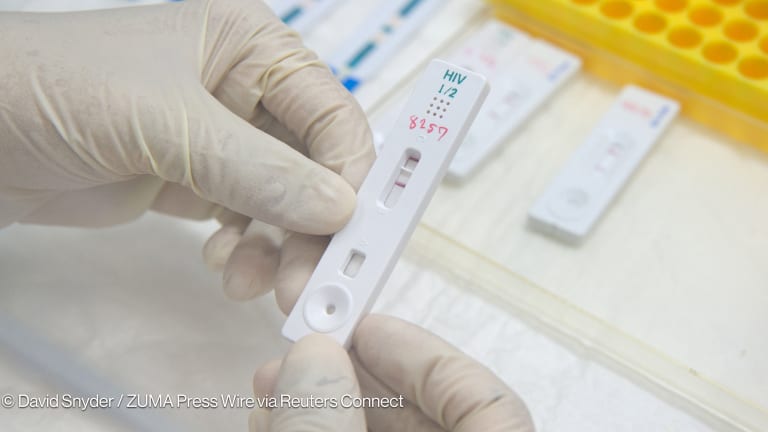
Put less money into military solutions and more money into education and awareness raising. That is the only way to enable lasting and sustainable development of girls’ rights, according to Swedish member of the European Parliament Mikael Gustafsson, chair of the Women’s Rights and Gender Equality Committee.
During the European Week of Action for Girls that took place last month in Brussels, Gustafsson underlined his “deep concerns about the increasing militarization of the EU,” which “would have several crucial implication for women and girls, and human rights.”
The third annual edition of the week-long event third annual edition of the European Week was organized by Plan International EU office and highlighted the barriers girls face worldwide in accessing their rights, while promoting them as drivers of change.
“The week of action is a great opportunity to make this issue of girl’s rights visible — to highlight it. This campaign aims at waking up public opinion and helping to put pressure on decision makers,” explained Gustafsson.
“The most important tool to achieve development is education,” he told Devex on the sidelines of the event. “Giving girls the right to go to school and get educated has an impact on a lot of different areas and [paves the way] to a society based on gender equality.”
Asked about how security can be ensured for girls that attend schools in conflict-affected and fragile states, Gustafsson said that security doesn’t come only through police protection; it also comes by talking, discussing issues within communities and fostering cultural change.
Gustafsson argued that in order to facilitate girls’ access to studies, the first step is raising awareness among pupils — both girls and boys — and giving better visibility to the issue among the target age-group.
“There is still a long way to go for girls to reach equal rights on education. What we need is a dualistic approach to tackle the issue: implementing laws that don’t discriminate against girls and allocating resources and funding for girls’ education. We also need to talk about and raise awareness on these issues.”
The key role of men
According to Gustafsson, the issue of women and girls’ rights does not only concern women and girls. Instead, he argued, it is extremely important to engage men in the fight for gender equality. Gender-based discrimination is often deeply rooted in social and cultural behaviors and across all countries culture is still one of the major barriers to education.
“If we want lasting change, we need to change the ideas our society has about girls,” he added.
“The real problem is that boys and men are often raised in an environment that is very masculine. We have a society that isn’t based on gender equality; men have much more power and women are generally disadvantaged. There is a patriarchal system in every country all over the world — we have gender equality in no country so far.”
“If men and boys play with the system,” he added, “they will maintain it. But they can also choose to change it. Indeed, men can step up to change the system.”
Toward gender-budgeting
Gustafsson offered some concrete solutions, stressing the importance of putting girls’ rights at the heart of development policy and programs and of implementing a gender perspective in all EU funded projects.
“In order to allocate specific funding for specific actions for girls’ rights,” he said, “what we need is gender budgeting.”
In practice, he explained, this means producing a budget in which gender has been “mainstreamed” — one that incorporates analysis from a gender perspective and that identifies the implications and impacts in all policy areas for women and girls as compared to men and boys.
According to Dagmar Schumacher, director of UN Women in Brussels, many recent studies show how societies investing in women can reap higher rewards. Most of the funding given to women, she explained, is re-invested in the family and in the community.
One such study, focusing on women in post-conflict situations, showed how 90 percent of income given to women goes back into the family and the community as a whole. With men, Schumacher noted, that figure falls to just 40 percent. “That shows clearly where the money should be channeled,” she argued.
“Giving funding to women is not sufficient though. As long as we can’t guarantee access to land and credit to women,” Schumacher continued: “We will need to work in that direction in a systematic way in the post-2015 framework: changing the legislation on heritage law would be a big step forward, particularly if we could combine it with access to credit. Everybody talks about how successful it is to give women microcredit, but why not real credit?”
To address structured inequality, together with its civil society partners, UN Women is advocating the inclusion of a new standardized goal on gender equality in the post-2015 development framework. Schumacher explained that this goal should have three priorities:
To end violence against women, by securing safe schools and safe sanitation.
Provide access to resources and capabilities, such as credit, land, education and a career.
Empower girls to participate in political and social decision-making at international, national and district levels.
Gustafsson, meanwhile, will also continue to push forward the agenda on girls rights: “I hope the European Parliament will support a post-2015 framework that will include a standalone goal on girls’ and women’s rights, including sex and reproductive health rights, as well as a distinct goal for education.”
Read more development aid news online, and subscribe to The Development Newswire to receive top international development headlines from the world’s leading donors, news sources and opinion leaders — emailed to you FREE every business day.








